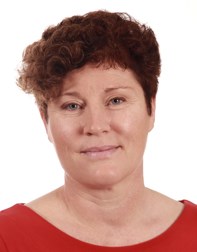First to review effects of parental support over time
The preventive effects of treatment programmes have stood well over time, as shown in Viveka Olofsson’s doctoral thesis in psychology at Örebro University.
She has reviewed four treatment programmes which cater to parents with children who are acting out. All the programmes were shown to yield equal results after two years’ time.

"I wanted to see which gave the best results," says Viveca Olofsson.
She has studied group-based treatments, on the basis of various theoretical grounds. Two of the programmes, Comet and The Incredible Years, are based essentially on the child's behaviour, where bad behaviour should be ignored by the parents, good behaviour rewarded, and boundaries set. The programme Connect is based on an attachment theory with the aim of parents understanding the child's behaviour, by reflecting on their own role, their own childhood, and their way of relating to the child. The fourth one, Cope, has a mixed theoretical base, with its focus on the family as a whole.
"A survey from 2010 shows that 200 different programmes are in use in Sweden to help prevent mental health problems in children. Meanwhile, there are very few evaluations and almost no Swedish research on how well these programmes have worked. Moreover, regarding group-based parenting support, there are no initiatives at all measuring the effect of the programme six months or more after concluded treatment," says Viveca Olofsson.
No differences over time
On that basis, she chose four programmes now used in practice by 30 treatment units. Most of them had previous experience with some of the programmes, but now all received access to all four. For example, Connect and its attachment theory, was new to everyone. The effects were measured directly after the treatment ended, again after one year and finally after two years' time.
"The programmes which are based on modified parental behaviour led to higher immediate effects. The explanation perhaps lying in that the techniques are used by the parents right away. However, the differences with regards to the other treatments levelled off when measured one year later."
Effects in parents and children
Viveka Olofsson measured the effects for the parents and for the children. This includes the incidence of fits of rage, lack of concentration, teasing siblings, depression, willingness to understand and physical violence.
The 30 treatment units are active in child and adolescent psychiatry, in social services, and in school. In addition to comparing the programmes, Viveca Olofsson also measured the results of the various units, showing that they appeared to have had similar effects.
"But there is a difference in the preconditions. Problems for children in child and adolescent psychiatry are on an entirely different level than those of children referred from school."
All circumstances
Viveka Olofsson has also examined the circumstances surrounding the programmes, all the practical details, large and small, which can be decisive for whether parents choose to participate or not, and whether the programmes can be implemented as intended. A survey in the thesis shows that there is no evaluation of how group-based treatment programmes are implemented.
"It is not enough to just look at the impact of the programmes themselves. For a single parent in a difficult financial situation, transportation costs to attend meetings or money for a babysitter, could perhaps make it impossible to participate. For the treatment clinic, maybe there is no budget for child care or working overtime. In such cases, programmes may not have been carried through," says Viveca Olofsson.
Text: Maria Elisson
Translation: Jerry Gray
Photo: Örebro University
